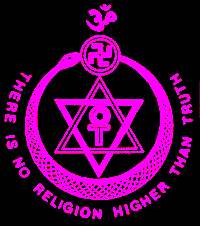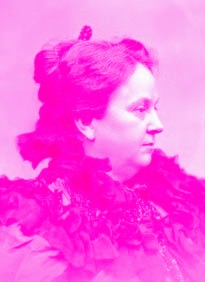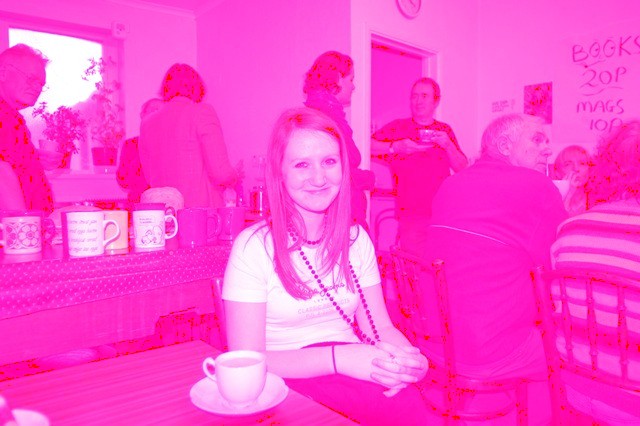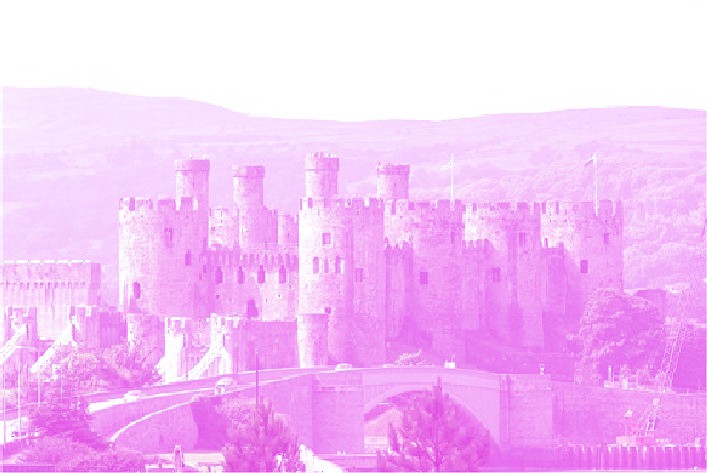The Scott Memorial,
A familiar
Theosophy
an outstanding introductory work on
Theosophy by a Student of Katherine Tingley entitled “Elementary
Theosophy”
Katherine Tingley
1847 – 1929
Founder & President of the
Point Loma Theosophical Society 1896
-1929
She and her students produced a series
of informative
Theosophical works in the early years of
the 20th century
ELEMENTARY
By
A Student of Katherine Tingley
Chapter
2
Who
is the Man?
The first question answered by Theosophy, a question
upon which all else depends, is: Who am I? If the answer: You are yourself,
seems silly, that is only at first glance. Nearly every one thinks of himself
as identical with the body. Is this the case? If it is, any talk about the
soul, or immortality, is necessarily absurd.
We use the body; command it; work with it and train
it, all as we will. With it we see, hear, touch, taste, and smell, employing
each sense just as we choose. It is obviously an instrument at our disposal, a
wonderfully complicated tool.
Can it then be the man? Can a player be identical with
his instrument, a carpenter with his hammer? Yet we habitually blind ourselves
to the difference by saying I am ill, or growing old, forgetting that so far as
we know, it is the body only, not the man, which is subject to these changes.
If then the man, the soul, is not identical with the
body, it will be natural to ask what becomes of him when, as we say, he is
unconscious, or asleep, or dead, when in old age his memory is gone, his mind
childish once more, his limbs stiff
or paralyzed. Surely we must admit that in these cases
the man himself must have changed. From this point of view it does look as if
the man and his body were one and the same, since he seems to change with its
changes. Let us go a step or two further and then come back.
All the waking hours we are conscious of a stream of
thoughts. We cannot stop the stream, but we can generally direct it where we
will. We can cause our thought to occupy itself with whatever we choose.
We can stop thinking of any one thing and think of any
other. It is not always easy, for the mind seems to be a living thing with
wishes of its own; but it is always possible.
So for two reasons it seems clear that the mind is not
the man. First because, like a restive horse it often opposes the wishes of its
owner; and
secondly, because the man can, if he uses will enough,
turn it where he will as a carpenter turns a chisel. Yet again we must ask what
becomes of the man when his mind becomes delirious in fever or childish in old
age?
And then there are the feelings, emotions. These too
go on all day. We are by turns happy or miserable, hopeful or despairing,
irritated or calm, compassionate or resentful. But these too we can control,
especially if we have practiced doing so. We can refuse to be miserable or
ruffled; we can compel ourselves to be hopeful, compassionate, considerate.
Feelings also have a life and persistency of their own and may object to being
controlled. But as, with practice, we can do it, it seems that they also cannot
be the man.
Having thus noted that mind and emotion are, or ought
to be, both under the control of the soul, through his will, we note next that
there is a limit to this control. Both need a healthy body for their perfect
health, and if the body is fevered or very old, mind and feeling are likely to
be dim and feeble, or even quite distorted, despite every effort of the will.
We have no warrant for saying that the man necessarily
varies with variations in his body; but we must say that to a very great extent
the mind and emotions do. So far as they do not, it is because they are
sustained and guided by the will.
This leads to the next point. However ill or old the
body may be, however unresponsive to the man's will, and however dimmed may be
the mind and feelings, the will itself and the man who uses it may be quite
unchanged.
We sometimes see that up to the very moment of death,
the man may be using his will in its full strength. The results may be small;
the stiffening lips may refuse to utter more than a few words, perhaps of love
and encouragement to those about; but it is evident that whatever else is
dying, the man and the will are not. Even at the very moment of death the eye
may still be speaking its message. The man, the soul, and its will, are passing
on in full consciousness. And the last gleam we get of that consciousness is
often one of unchanged, unlessened love for those remaining behind.
So we have arrived at some answer to our question:
What, or who, am I? Let us call I the soul, and read our answer thus: The soul,
the I, the self, is that conscious power which dwells during life in the body,
amidst the bodily feelings, amidst the emotions, capable of dominating them;
using the mind and capable of dominating it; having for its instrument of
control the will. So far as we can see, neither the soul, nor its will, nor its
degree of love for those it leaves behind, are necessarily affected by illness
or by death.
For more info on Theosophy
Try these
Cardiff
Theosophical Society meetings are informal
and there’s always a cup of tea afterwards
The Cardiff Theosophical Society Website
The
National Wales Theosophy Website
Dave’s Streetwise Theosophy Boards
This is for everybody not just people in Wales
Theosophy Cardiff’s Instant Guide to Theosophy
Lentil burgers, a
thousand press ups before breakfast and
the daily 25 mile
run may put it off for a while but death
seems to get most
of us in the end. We are pleased to
present for your
consideration, a definitive work on the
subject by a
Student of Katherine Tingley entitled
One Liners & Quick Explanations
The Most Basic Theosophy Website in the Universe
If you run a
Theosophy Group you can use
this as an
introductory handout
A selection of
articles on Reincarnation
Provided in
response to the large number
of enquiries we
receive on this subject
It’s all “water
under the bridge” but everything you do
makes an imprint
on the Space-Time Continuum.
Theosophy and the Number Seven
A selection of articles relating to the esoteric
significance of the Number 7 in Theosophy
The
South of Heaven Guide to
Theosophy and Devachan
The main criteria
for the inclusion of
links on this
site is that they have some
relationship
(however tenuous) to Theosophy
and are
lightweight, amusing or entertaining.
Topics include
Quantum Theory and Socks,
Dick Dastardly and Legendary Blues Singers.
No
Aardvarks were harmed in the
Within the
British Isles, the Adyar Theosophical Society
Bangor*Basingstoke*Billericay*Birmingham*Blackburn*Bolton*Bournemouth
Bradford*Bristol*Camberley*Cardiff*Chester*Conwy*Coventry*Dundee*Edinburgh
Folkstone*Glasgow*Grimsby*Inverness*Isle
of Man*Lancaster*Leeds*Leicester
Letchworth*London*Manchester*Merseyside*Middlesborough*Newcastle
upon Tyne
North
Devon*Northampton*Northern Ireland*Norwich*Nottingham
Perth*Republic of
Ireland*Sidmouth*Southport*Sussex*Swansea*Torbay
Tunbridge
Wells*Wallasey*Warrington*Wembley*Winchester*Worthing
The Spiritual Home of Urban Theosophy
The Earth Base for Evolutionary Theosophy
A B C D EFG H IJ KL M N OP QR S T UV WXYZ
Complete Theosophical Glossary in Plain Text Format
1.22MB
What Theosophy Is
From the Absolute to Man
The Formation of a Solar System The Evolution of Life
The Constitution of Man After Death
Reincarnation
The Purpose of Life
The Planetary Chains
The Result of Theosophical Study
Preface to the American Edition Introduction
Occultism and its Adepts The Theosophical Society
First Occult Experiences Teachings of Occult Philosophy
Later Occult Phenomena Appendix
Preface
Theosophy and the Masters General Principles
The Earth Chain Body and Astral Body Kama – Desire
Manas Of Reincarnation Reincarnation Continued
Karma Kama Loka
Devachan
Cycles
Arguments Supporting Reincarnation
Differentiation Of Species Missing Links
Psychic Laws, Forces, and Phenomena
Psychic Phenomena and Spiritualism
Quick Explanations with Links
to More Detailed Info
What is Theosophy ? Theosophy Defined (More Detail)
Three Fundamental Propositions Key Concepts of Theosophy
Cosmogenesis
Anthropogenesis
Root Races
Karma
Ascended Masters After Death States Reincarnation
The Seven Principles of Man Helena Petrovna Blavatsky
Colonel Henry Steel Olcott William Quan Judge
The Start of the Theosophical Society Theosophical Society Presidents
History of the Theosophical Society Glossaries of Theosophical Terms
History of the Theosophical Society in Wales
The Three Objectives of the Theosophical Society
Explanation of the Theosophical Society Emblem
Karma Fundamental Principles Laws: Natural and Man-Made The Law of Laws
The Eternal Now
Succession
Causation The Laws of Nature A Lesson of The Law
Karma Does Not Crush Apply This Law
Man in The Three Worlds Understand The Truth
Man and His Surroundings The Three Fates
The Pair of Triplets Thought, The Builder
Practical Meditation Will and Desire
The Mastery of Desire Two Other Points
The Third Thread Perfect Justice
Our Environment
Our Kith and Kin Our Nation
The Light for a Good Man Knowledge of Law The Opposing Schools
The More Modern View Self-Examination Out of the Past
Old Friendships
We Grow By Giving Collective Karma Family Karma
National Karma
India’s Karma
National Disasters
Try these if you are looking for a
local Theosophy
Group or Centre
UK Listing of Theosophical Groups
Worldwide Directory of Theosophical Links

General pages
about Wales, Welsh History
and The History
of Theosophy in Wales
Conwy Castle on
the North Wales Coast
Wales is a
Principality within the United Kingdom and
has an eastern
border with England.
The land area is
just over 8,000 square miles.
Snowdon in North
Wales is the highest mountain at 3,650 feet.
The coastline is
almost 750 miles long.
The population of Wales as at the 2001 census is 2,946,200.
__________________________
Cardiff, Wales,
UK, CF24 – 1DL
Wales Theosophy Links Summary
All Wales
Guide to Theosophy Instant
Guide to Theosophy
Theosophy
Wales Hornet Theosophy
Wales Now
Cardiff
Theosophical Archive Elementary
Theosophy
Basic
Theosophy Theosophy
in Cardiff
Theosophy
in Wales Hey Look!
Theosophy in Cardiff
Streetwise
Theosophy Grand
Tour
Theosophy
Aardvark Theosophy Starts Here




